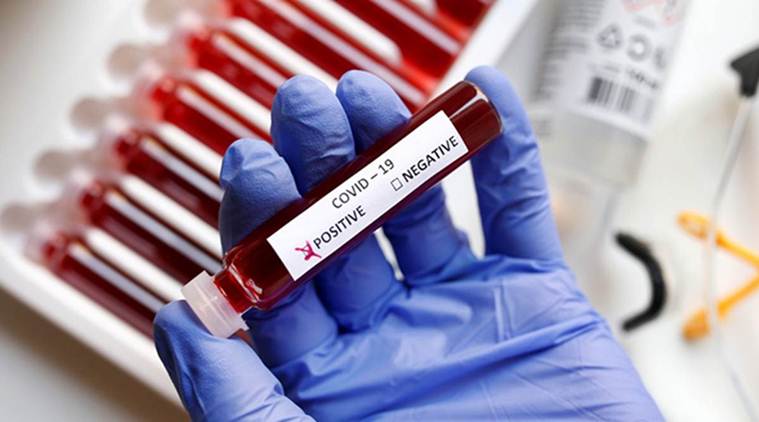 Here’s what pregnant women need to take care of. (Source: File Photo/Getty Images/Thinkstock)
Here’s what pregnant women need to take care of. (Source: File Photo/Getty Images/Thinkstock)
Pregnant women at this time have to take extra care of their health. As we all know, the novel coronavirus spreads through respiratory droplets sent into the air when a person who has COVID-19 coughs or sneezes. It may also spread when someone touches a surface infected by a person who has the virus. Researchers are working quickly to learn more about the new coronavirus as well as its impact on our daily lives and of course on pregnant ladies too.
The current, hopeful assessments of the new coronavirus are based in large part on a study published online last month in The Lancet, of nine pregnant women in their third trimester in Wuhan, China, who had pneumonia caused by COVID-19. None of the women developed severe illness, and all of their babies were born healthy. The risk of passing the infection to the foetus appears to be very low, and there is no evidence of any foetal malformations or effects due to maternal infection with COVID-19.
This is even more important for women who are because they have full responsibility for the care of their unborn child. That is why you can protect yourself and your baby in the right way by taking more precautions than normal at this time. Dr Shobha Gupta, medical director and IVF expert, Mother’s Lap IVF Center points out that “one reason to worry about COVID-19 in pregnancy is that women are prone to become severely ill with flu when they are pregnant”. “This is because pregnancy suppresses a person’s immune system. Additionally, in the later stages of pregnancy, the foetus and uterus can start squashing other organs, including the lungs. As a result, some areas of the lungs become less able to circulate air, leaving them more prone to infection,” she said.
 Pregnant women should take extra precautions to prevent infections. (Source: File Photo)
Pregnant women should take extra precautions to prevent infections. (Source: File Photo)
What do you do if you fall ill?
If you become ill with symptoms of cough, fever and face difficulty in breathing, it is advised to stay at home and call your local healthcare services for advice. If you are found ill with COVID-19, please call your midwife or antenatal care provider and inform them about your illness. Request instructions on how to proceed with antenatal care appointments and delivery plans during the course of your illness.
“In fact many hospitals in our country are stressing on the priority testing of pregnant women with COVID-19 symptoms, isolation of pregnancy wards from confirmed COVID-19 cases, an elevation of care for any pregnant women with respiratory illnesses, and extra care for all women in delivery, in case breathing complications should arise,” informed Dr Shweta Goswami, senior consultant gynaecologist and IVF expert, Jaypee and Cloudnine Hospital, Noida.
Follow the prevention steps
Steps are being taken by the Government of India to avoid crowding. should avoid going out to run errands to avoid contracting the infection. If for some reason you have to venture out, use a mask that covers your face properly. Also, do not touch the mask other than the straps to wear it and remove it. Ensure you practice social distancing of at least one metre from any person.
Know about the infection
Be very aware of the potential symptoms of coronavirus and regular flu symptoms so that pregnant women can call their health provider if they have experience any, which include fever, respiratory symptoms or possibly even diarrhoea. Additionally, if you have been in contact with someone who has tested positive for COVID-19, you should monitor your own temperature and be especially aware of any respiratory symptoms. Your doctor can advise best steps for care and testing.
Ensure necessary precautions
It is necessary to wash your hands thoroughly with soap several times a day for at least 20 seconds. If you are in a place where water is not available, then keep using an alcohol-based sanitiser to clean the hands.
Regular online check-ups
Regular check-ups during pregnancy are very important for the health of your baby and you. To minimise any potential danger, it is necessary that you have your check-up periodically. “But during this hour of corona crisis, except important pregnancy check-ups, try consulting your doctor online. Many offices are already working to consolidate in-person appointments; for example, if someone is coming in for an ultrasound, a routine prenatal check might be added to the same visit. So apart from social distancing, try and cut your routine checks ups to online consultations. But at the same time it is very important to inform your doctor immediately if any health problems arise,” advised Dr Anubha Singh, gynaecologist and IVF, Shantah Fertlity Centre.
Do not touch your face repeatedly
If you have a habit of repeatedly touching your mouth, eyes, nose and ears, change this immediately. It is even more important for pregnant women because it can be harmful to their health as well as to their baby.
Get enough sleep
It is important for to keep the body and mind fully energetic. To keep the body and mind energetic, you need to get enough sleep. It has been proved in many researches that by getting enough sleep each day, our body’s immunity increases amazingly. If your immunity is good, you can easily avoid many health problems. Along with this, moments of rest are very important for the baby growing in your womb. So do not compromise and make sure you get enough sleep.
Balanced diet
The immune system’s efficacy dips during pregnancy, which places pregnant people at a higher risk for contracting many transmissible illnesses whether food borne or respiratory. So it is necessary for expectant mothers to have a nutritious diet. Your child also gets nutrients from what you eat. A balanced diet should be your first priority to provide proper nutrition to your baby during pregnancy. The right diet and all kinds of vitamins increase your body’s ability to fight against diseases. So without delay, get a diet chart from your specialist and eat a balanced diet according to it.